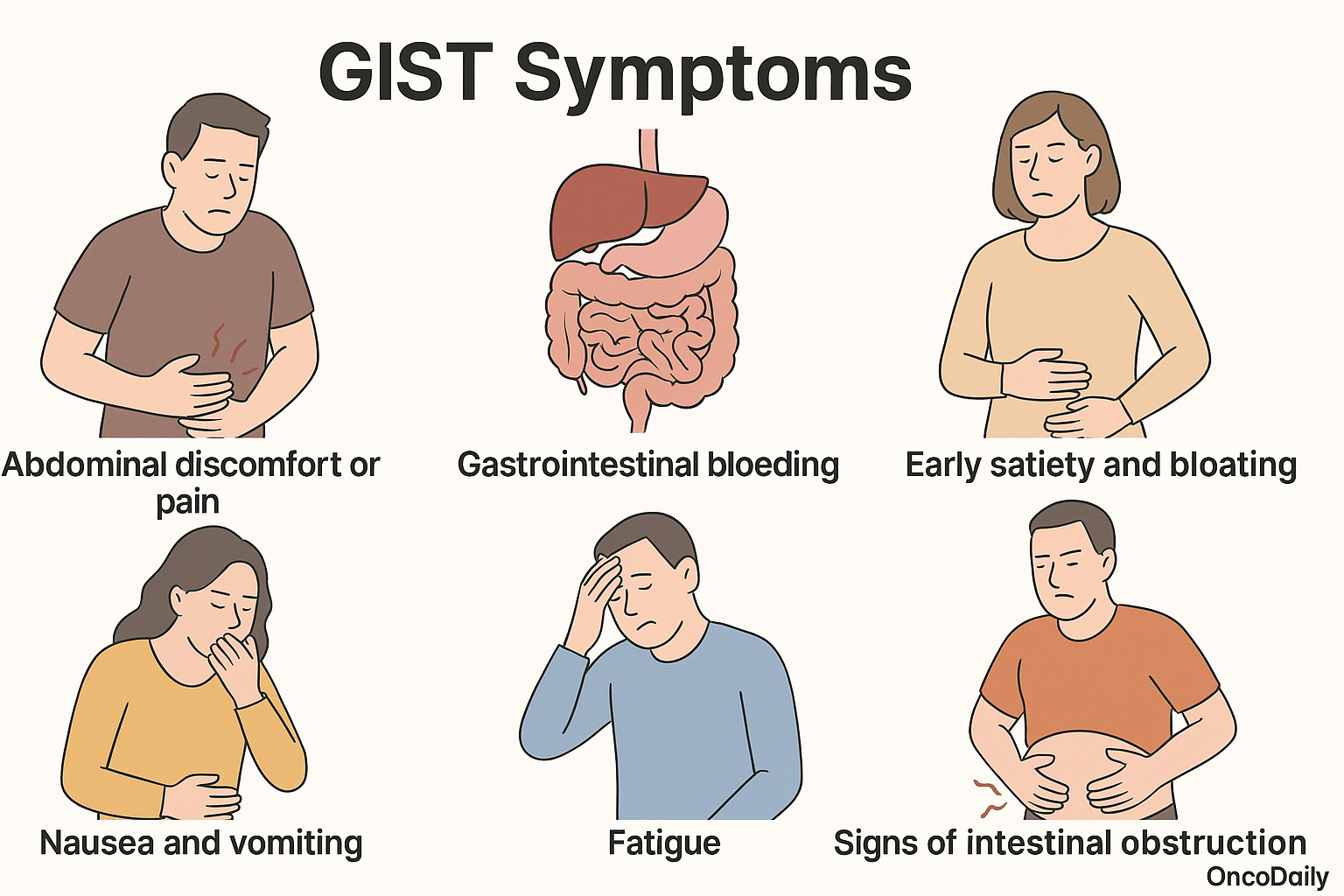
Abdominal pain is one of the most common symptoms that individuals with GIST may experience. This discomfort can vary significantly in intensity and may be intermittent or recurrent. As the tumor grows, it can exert pressure on surrounding organs, leading to a feeling of fullness or bloating. This sensation can be misleading as it might be attributed to other less severe conditions, resulting in a delay in diagnosis. Additionally, abdominal pain could be accompanied by other symptoms such as nausea or loss of appetite, further complicating the overall picture. Recognizing abdominal pain as a potential indicator of more serious conditions, including GIST, can lead to more thorough medical evaluation.
Another symptom associated with GIST is gastrointestinal bleeding, which can be a serious sign of tumor progression. This bleeding may manifest as blood in the stool, black tarry stools, or even vomiting blood. These signs are indicative of internal bleeding and should prompt immediate medical attention. The source of this bleeding can often be traced back to the tumor eroding into nearby blood vessels. Individuals experiencing these symptoms may feel lightheaded or faint due to a drop in blood volume, making it crucial to seek prompt medical assistance. Understanding the nature of gastrointestinal bleeding can be pivotal in the early detection of GIST and in initiating appropriate treatments.
Unintentional weight loss is another concerning symptom that may point towards the presence of a GIST. Weight loss that occurs without a clear reason can be alarming and should not be overlooked. This symptom can arise from various factors, including loss of appetite, the body’s energy use increasing due to the tumor, or malabsorption issues that may occur if the tumor interferes with normal digestion. In any situation, unintentional weight loss often signals an underlying health issue. When combined with other symptoms like abdominal discomfort or changes in bowel habits, it becomes even more important to consult healthcare professionals for a comprehensive evaluation.
Fatigue and weakness are common complaints among individuals with GIST, often stemming from the body’s response to cancer and the related physiological stress. Cancer can cause an increase in metabolic demands, as the body works harder to fight the disease. This response can lead to profound exhaustion that isn’t relieved by rest. Patients may find themselves feeling drained, lacking the energy to engage in daily activities, which can significantly affect their quality of life. This symptom can sometimes be mistaken for simple tiredness or stress, making it critical to pay attention to these feelings in the context of other symptoms related to GIST.
Changes in bowel habits can also be associated with GIST. Individuals may experience constipation, diarrhea, or a mix of both, depending on the tumor’s location and the level of obstruction it may cause. These changes can result from the tumor’s impact on the digestive tract’s normal functioning. It is common for people to dismiss these changes as minor issues, yet persistent alterations in bowel habits can be significant indicators of GIST. Awareness of this symptom can play a vital role in prompting further investigation and leading to timely and effective management of the condition.
Lastly, a palpable mass in the abdomen may be felt in some cases where GISTs are present. While not all GISTs are detectable through physical examination, larger tumors may create a noticeable lump or swelling in the abdominal area. Patients or caregivers might be the first to notice these masses, which can lead to a visit to a healthcare provider for evaluation. Early detection of such masses can be crucial in initiating timely treatment, which can greatly influence prognosis and outcomes for individuals affected by GIST.
Recognizing and understanding the key symptoms associated with GIST is essential for timely identification and treatment. Abdominal pain, gastrointestinal bleeding, unintentional weight loss, fatigue and weakness, changes in bowel habits, and the presence of a palpable mass are all potential indicators that warrant medical attention. Awareness among individuals and their families can promote proactive engagement with healthcare providers, leading to early diagnostic measures. As GIST can be a complex condition, staying informed about its symptoms and trends plays a crucial role in managing health effectively and ensuring better care for those affected. Regular check-ups and consultations help monitor any concerning changes and enhance the potential for successful treatment outcomes.
For more information about GIST, interested readers can explore resources like the American Cancer Society [https://www.cancer.org], where they can find extensive information on symptoms, treatment, and support options related to gastrointestinal stromal tumors.
